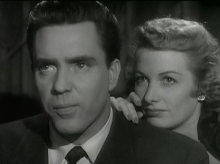Some sermon notes from when Justin spoke on the second chapter of Ruth. In Ruth, an amazing tapestry of redemptive history unfolds.
Justin touched on the Hebrew word "Hesed", meaning God's covenant love and complete obligation to provide. And in Ruth, we see how God over-abundantly meets the needs for Ruth and Boaz.
In the Old Testament Jewish cannon, Ruth is located between Proverbs and Psalms, which is significant, as Proverbs ends with chapter 31 (the "Godly woman" chapter) then goes into Ruth, then continues into Psalms, with Psalm 1 speaking about the characteristics of the "Godly man". The book of Ruth also caps off with genealogy of David, and then leads into Psalms, which is basically all about David.
Hesed is seen in Ruth characterized first by Ruth's hope in God. We see her meekness and submissiveness to God's providence. Ruth asks God, "
Why have I found favor?", reflecting an attitude of gratefulness (especially relevant in our age of greed, want and selfishness.) We don't deserve anything good, and any good thing we have is solely as a gift of God.
Hesed is also seen in the life of Boaz, as the life of Boaz is one centered on God (described in Jewish writings as "A mighty man strong in the Torah".) His chief concern for his workers is that they know God and his blessing falls upon them. "You shall love your neighbor as yourself" and Boaz follows this: not just through legalistic faithfulness but through heaping blessings on Ruth and Naomi. A real test of a person is how they reply to the marginalized, the needy and the poor.
We see hesed in Boaz in his respect for Ruth and for a desire to protect her. Boaz had a willingness to provide, and gave without expecting anything in return.
Friday, October 8, 2010
Subscribe to:
Post Comments (Atom)














No comments:
Post a Comment